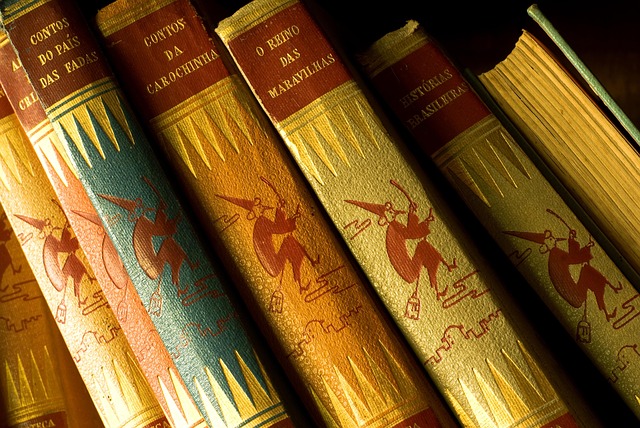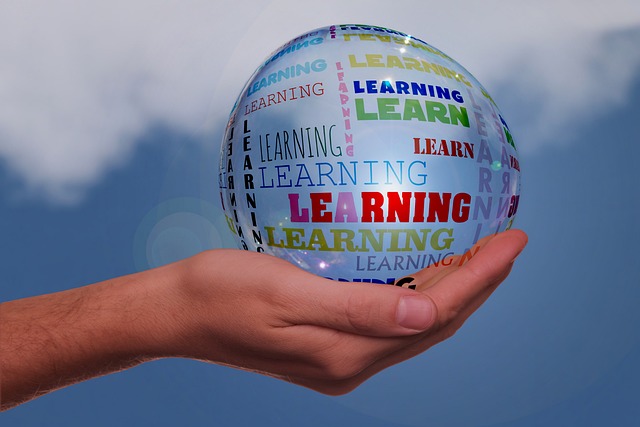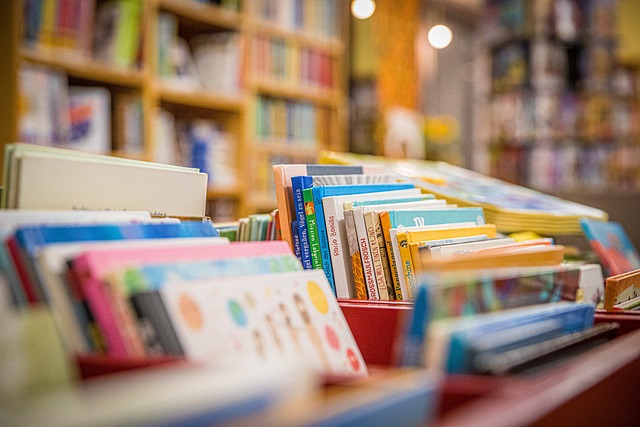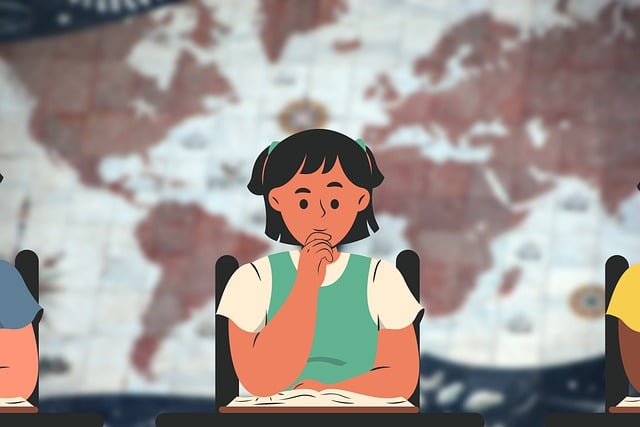Karachi, Pakistan's vibrant metropolis, offers a diverse array of extracurricular activities catering to students from various backgrounds. These activities, ranging from academic clubs and sports to arts ensembles and community service, enrich student lives by fostering essential skills like leadership, teamwork, creativity, and time management. The city's extracurricular scene includes both established institutions and grassroots initiatives, encouraging students to explore interests, discover talents, build connections, and contribute to Karachi's rich cultural tapestry. Modern programs emphasize holistic education, preparing students for higher education and competitive job markets through project-based learning, community partnerships, technology workshops, STEM activities, and arts programs. These efforts transform student growth in Karachi into a vibrant educational hub.
In Karachi, extracurricular programs have evolved from traditional sports and clubs to dynamic, innovative offerings that significantly contribute to student growth. This multifaceted city, renowned for its bustling cultural landscape, is witnessing a metamorphosis in youth engagement through these programs. From historical perspectives to modern trends, this article explores the evolving roles of extracurriculars in fostering social-emotional development, academic integration, and holistic student success in Karachi.
- The Landscape of Extracurricular Activities in Karachi: A Snapshot
- Historical Perspective: How Extracurriculars Have Shaped Student Growth
- Modern Trends: Innovative Programs and Their Impact
- The Role of Extracurriculars in Fostering Social and Emotional Development
- Academic Integration: Collaborating with Schools for Holistic Growth
- Measuring Success: Evaluating the Effectiveness of Extracurricular Programs
The Landscape of Extracurricular Activities in Karachi: A Snapshot

Karachi, Pakistan’s vibrant metropolis, boasts a diverse and dynamic landscape of extracurricular activities that cater to students from various backgrounds. From academic clubs and sports teams to arts ensembles and community service initiatives, the city offers a vast array of opportunities for personal growth and development outside the traditional classroom setting. These activities not only enrich students’ lives but also foster essential skills like leadership, teamwork, creativity, and time management.
The extracurricular scene in Karachi is characterized by both established institutions and grassroots initiatives. Schools and colleges often organize well-structured programs, while local community centers and non-profit organizations contribute to a more diverse and inclusive environment. This blend of structured and free-flowing activities creates a unique ecosystem that encourages students to explore their interests, discover hidden talents, and build valuable connections, all while contributing to the city’s vibrant cultural tapestry in the process.
Historical Perspective: How Extracurriculars Have Shaped Student Growth

In Karachi, as in many educational hubs around the world, extracurricular programs have evolved significantly over time, playing a pivotal role in shaping student growth beyond academic achievements. Historically, these activities were often confined to sports, arts, and social clubs, serving as a means for students to develop interpersonal skills, discover passions, and foster a sense of community. Over the years, however, the scope has broadened considerably. Today, extracurriculars encompass a wide array of offerings, from robotics competitions and debate societies to community service projects and entrepreneurship workshops, catering to diverse interests and talents.
This transformation reflects a growing recognition that holistic education goes beyond textbook knowledge. By participating in extracurricular programs, students gain valuable skills such as leadership, teamwork, problem-solving, and adaptability—qualities increasingly sought after by higher education institutions and employers alike. In Karachi’s dynamic urban landscape, where cultural diversity and competitive markets converge, these programs have become a vital instrument for nurturing well-rounded individuals capable of navigating complex global environments.
Modern Trends: Innovative Programs and Their Impact

In Karachi, a bustling metropolis known for its vibrant educational landscape, modern trends in extracurricular programs are revolutionizing student growth. Innovative initiatives like project-based learning, community service partnerships, and technology-driven workshops are emerging as powerful tools to enhance academic performance and foster holistic development. These programs encourage students to think critically, collaborate creatively, and develop essential skills for the 21st century.
For instance, many schools in Karachi are integrating STEM (Science, Technology, Engineering, and Mathematics) activities into their extracurricular offerings, cultivating a generation of technologically adept individuals. Similarly, arts programs are gaining traction, promoting self-expression, cultural understanding, and creativity among students. These modern trends not only complement traditional education but also create a dynamic environment where students can explore diverse interests, discover passions, and prepare for an increasingly competitive global marketplace.
The Role of Extracurriculars in Fostering Social and Emotional Development

In the vibrant city of Karachi, extracurricular programs have evolved far beyond mere after-school activities. They’ve become powerful tools that significantly contribute to students’ holistic development. These programs encourage social interactions, fostering a sense of community among peers from diverse backgrounds. Students learn valuable soft skills like teamwork, communication, and conflict resolution through group projects and team sports, which are abundant in Karachi’s dynamic educational landscape.
Furthermore, extracurricular activities offer a safe space for emotional expression and growth. Activities such as art clubs, drama groups, and music ensembles allow students to explore their creativity, build self-confidence, and process emotions in a supportive environment. The social connections formed during these programs often extend beyond the school walls, positively impacting students’ overall well-being and preparation for future collaborative endeavors.
Academic Integration: Collaborating with Schools for Holistic Growth

In Karachi, extracurricular programs are no longer mere supplements to education but integral components driving holistic student growth. The evolution has seen a seamless integration of academic and co-curricular activities, reflecting a collaborative effort between schools and community organizations. This partnership ensures that students engage in learning experiences beyond the classroom, fostering skills like leadership, teamwork, creativity, and critical thinking.
By aligning extracurricular programs with curriculum objectives, educational institutions in Karachi are creating a structured pathway where academic knowledge is enhanced through practical application. This approach encourages students to explore their interests, discover passions, and develop a sense of purpose—all while achieving academic excellence.
Measuring Success: Evaluating the Effectiveness of Extracurricular Programs

Measuring success is a crucial aspect when evaluating the effectiveness of extracurricular programs in Karachi’s educational institutions. Unlike academic performance, which can be quantified through grades and test scores, assessing student growth in co-curricular activities requires a more holistic approach. One method is to track participation rates over time, ensuring equal opportunities for all students, regardless of their backgrounds or abilities. By analyzing trends, schools can identify programs that consistently attract diverse student bodies, fostering an inclusive environment.
Additionally, qualitative feedback from both students and teachers plays a vital role. Student surveys can gauge the impact of these programs on personal development, such as leadership skills, teamwork, and confidence. Teachers’ insights, through regular evaluations, can highlight program strengths and areas for improvement, ensuring that extracurricular activities align with the overall educational goals of Karachi’s academic institutions.
The evolving landscape of extracurricular activities in Karachi reflects a dynamic and inclusive approach to student growth. From traditional sports and arts to innovative programs that integrate technology and community service, these activities play a pivotal role in fostering social-emotional development and enhancing academic performance. By collaborating closely with schools, extracurricular programs in Karachi are not only providing holistic development but also preparing students for a rapidly changing world. Measuring success through diverse metrics ensures these initiatives remain effective and adaptable to the needs of the city’s youth.
